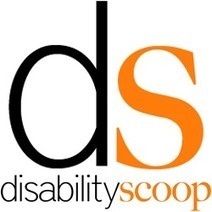It happened again this week. Not only in my office but in the different stores I went to in order to feed my family and my cats. Adults chastising children for making mistakes. Not children intentionally creating destruction, but rather demonstrating difficulty based on their size, age, or developmental level. I saw a 4 month old being spanked for fussing in the cart as her mother was roaming the isles. I heard a 6 year old being told that he was a loser after bumping into a shelve in an isle that was overcrowded with carts and people. I had parents tell me that their children are failing on purpose. They say that they can’t take anything more away to get their children to successfully complete their school work because “the child doesn’t care”.
One out of 3 children are born with a congenital defect. One child in six has a developmental delay. One out of 7 children have dyslexia, a neurologic language disorder that affects, to varying degrees, oral language and written language for reading, writing, or spelling. It can also affect mathematics due to the fact that math has a language too, such as 5 x 6 = 30, which is actually different than 6 x 5 = 30 although the answer is the same.
Even typically developing children are not capable of knowing everything early on. Babies only have crying to let others know of their distress, be it hunger, tiredness, discomfort, or illness. They don’t cry to irritate their parents, but only to try to get help for issues that they can’t control themselves. Preschoolers don’t have the same sense of time as older children and adults but are frequently blamed for making their parents late on purpose.

Is he the one in seven who will have dyslexia?
This is dyslexia awareness month, so it is important to consider how this language-based disorder may be affecting every 7th person, child or adult, that you come in contact with. If that individual has problems processing what you are saying, they may either ask you to repeat yourself, ask for clarification, or more likely due to fear of criticism, just try to do what they understood. A customer may ask you about something on sale, although to you the information is clearly stated on the banner or flyer, but the customer has significant difficulties decoding words that are not in his sight vocabulary. They fear that look of disdain or disgust but don’t want to be more embarrassed by buying the wrong things.
Take a moment to remember how you felt as a child when you were criticized or punished for something that you felt you had tried your best to accomplish. Now bring that feeling forward to provide empathy for the child or adult you are with, so that you don’t just repeat history. Create a better experience for this child or adult. At the same time you will be creating a better people skill for yourself.






